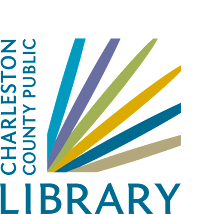 Our next two titles for discussion explore our confrontations with each other, particularly those in which religion seems to be the point of conflict but in reality has come to represent many other, more basic disparities, such as those involving sovereignty, security, land ownership, and control of natural resources.
Our next two titles for discussion explore our confrontations with each other, particularly those in which religion seems to be the point of conflict but in reality has come to represent many other, more basic disparities, such as those involving sovereignty, security, land ownership, and control of natural resources.Wednesday, September 14, 2011
October Not Fiction Book Discussions
 Our next two titles for discussion explore our confrontations with each other, particularly those in which religion seems to be the point of conflict but in reality has come to represent many other, more basic disparities, such as those involving sovereignty, security, land ownership, and control of natural resources.
Our next two titles for discussion explore our confrontations with each other, particularly those in which religion seems to be the point of conflict but in reality has come to represent many other, more basic disparities, such as those involving sovereignty, security, land ownership, and control of natural resources.In Zeitoun, Dave Eggers tells the true story of a New Orleans family--Abdulrahman Zeitoun, his wife, Kathy, and their children--caught up in both the war on terror and Hurricane Katrina. With compassionate, straightforward prose, Eggers tells how, as Hurrican Katrina approached, Zeitoun stayed in New Orleans to watch over his home and painting business while Kathy took the children out of town to safety. In the first few days after the storm, Zeitoun paddled about in a canoe feeding abandonned dogs and rescuing people. But when the National Guard arrived, Zeitoun was arrested on his own property, he was held without due process, and he and other prisoners experienced abuse. Because he grew up in Syria, his captors assumed he must have terrorist connections, and they accused him and his fellow detainees of being al Qaeda and Taliban. After nearly a month of captivity, during which he was unable to make a phone call, he was released on a charge of looting, which was later dropped. Meanwhile his family, both Kathy in Arizona and his extended family in Syria, try frantically to find him and secure his release.
A uniquely American tragedy, Zeitoun also manages to offer a hopeful view forward, in the faith Zeitoun shows in his God, his family, his city, and his work. After he is released, he returns to work to help rebuild the city. Eggers writes, "More than anything else, Zeitoun is simply happy to be free and in his city. It's the place of his dreams, the place where he was married, where his children were born, where he was given the trust of his neighbors. So every day he gets in his white van, still with its rainbow logo, and makes his way through the city, watching it rise again. . . . As he drives through the city during the day and dreams of it at night, his mind vaults into glorious reveries--he envisions this city and this country not just as it was, but better, far better. It can be. Yes, a dark time passed over this land, but now there is something like light."
The Zeitoun Foundation, created in 2009 to aid in the rebuilding of and ongoing health of the city of New Orleans, and to help ensure the human rights of all Americans, has distributed over $200,000 in grants to nonprofits, funded by the sale of the book. Zeitoun is also a recipient of the Dayton Literary Peace Prize, the first and only annual U.S. literary award recognizing the power of the written word to promote peace by leading readers to a better understanding of other cultures, peoples, religions, and political points of view.
Timothy Egan, writing for the New York Times Book Review, says, "Fifty years from now, when people want to know what happened to this once-great city during a shameful episode of our history, they will still be talking about a family named Zeitoun." We hope you will join the discussion: Tuesday, October 4, at 6:30 p.m. at Main Library; Thursday, October 20, at 11:00 a.m. at West Ashley Branch Library; and here on the blog.
Subscribe to:
Posts (Atom)
